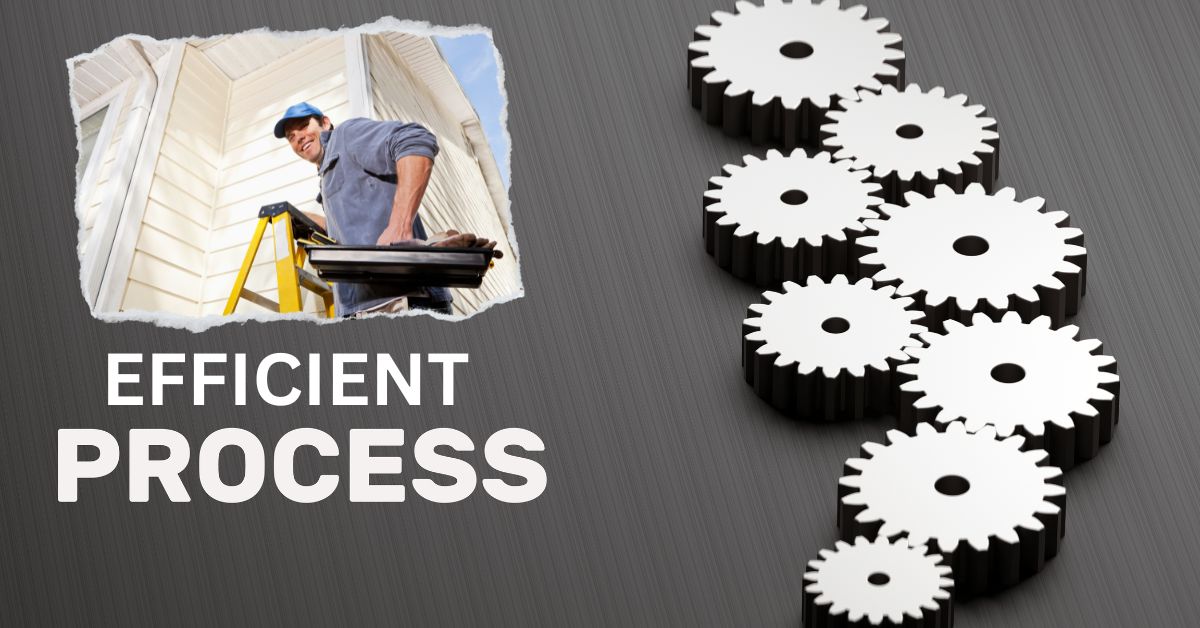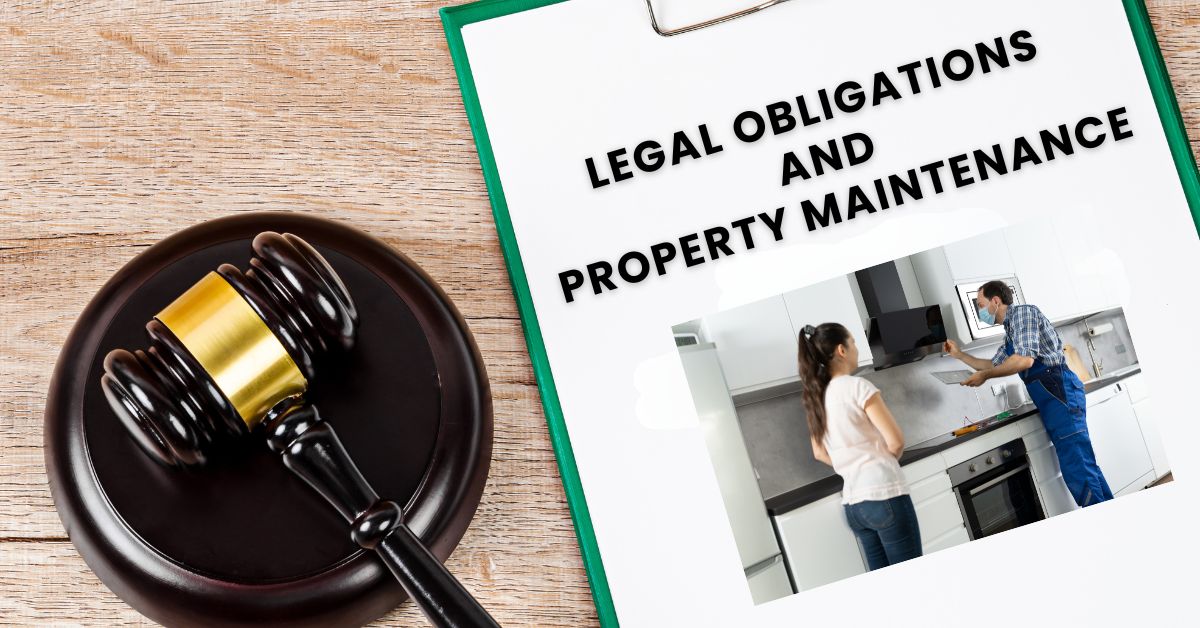Welcome to a crucial exploration in property management: reducing tenant turnover through efficient maintenance responses. This article explains the vital role of timely maintenance in the success of rental property management.
For landlords and property managers, maintaining a balance between responsibilities and operational efficiency is key. At the heart of this is understanding tenant needs, especially how quick maintenance can significantly enhance their satisfaction and tenancy duration. Surprisingly, consistent, reliable maintenance services often play a more critical role in tenant retention than larger, more noticeable gestures.
Tenant turnover is not just a logistical issue; it's a financial one too. One of the main reasons tenants leave is due to delayed or inadequate maintenance. This highlights the importance of a proactive and efficient approach to repairs, which not only meets tenant expectations but also fulfills legal obligations and boosts profitability.
In this article, we will explore the multifaceted impact of rapid maintenance on reducing tenant turnover. From the hidden costs associated with tenant changes to the legalities and practical steps for effective repair processes, we aim to provide actionable insights for landlords and property managers. Understanding these elements is vital for success in the competitive rental market.
Join us as we delve into how swift maintenance responses can lead to happier tenants, lower turnover, and increased property owner’s profitability.
Understanding Tenant Needs: The Top Reason for Rental Property Switching
When it comes to managing rental properties, understanding tenant needs is pivotal in reducing turnover rates. At the core of tenant dissatisfaction, often leading to their decision to move, lies the issue of maintenance and repair responsiveness. It's not just about addressing problems; it's about how quickly and effectively these issues are resolved.
Surveys and studies in the property management sector consistently show that maintenance-related concerns are the top reasons tenants choose to leave a rental property. When repairs are delayed or handled inadequately, it directly impacts the tenant's quality of life and their perception of the landlord's commitment to their well-being. This dissatisfaction can lead to tenants seeking new accommodations where they feel their needs and comfort are prioritized.
.jpg)
Interestingly, the need for speedy maintenance isn't limited to major repairs or emergencies. Even the handling of minor issues plays a significant role in tenant satisfaction. A leaky faucet or a malfunctioning appliance might seem trivial, but timely addressing these small inconveniences can significantly enhance a tenant's living experience. This attention to detail shows tenants that their comfort and concerns are taken seriously, fostering a sense of respect and care in the landlord-tenant relationship.
Furthermore, the pace at which maintenance issues are addressed also communicates a message to the tenants about the property's overall management quality. Prompt and efficient maintenance not only resolves immediate problems but also serves as a preventive measure against larger issues down the line. This proactive approach can extend the lifespan of the property's features and appliances, ultimately benefiting both the tenant and the landlord.
In summary, the key to reducing tenant turnover lies in understanding and promptly addressing their maintenance needs. By ensuring a swift response to repair requests, landlords can significantly improve tenant satisfaction, reduce the likelihood of them moving to another rental property, and maintain a positive and productive landlord-tenant relationship.
The Hidden Costs of Tenant Turnover: A Landlord's Perspective
Tenant turnover is an inevitable aspect of rental property management, but its hidden costs can be substantial and often overlooked. From a landlord's perspective, understanding these costs is crucial for effective property management and maintaining profitability.

Lost Rental Income: The most immediate impact of tenant turnover is the loss of rental income during vacancy periods. Even a month without a tenant can significantly impact annual revenue, especially for landlords relying on rental income to cover mortgage payments or property expenses.
Marketing and Advertising Expenses: Finding new tenants involves marketing the property, which can incur costs in advertising, listing services, and potentially hiring a property manager. These expenses can quickly add up, particularly if the property does not attract tenants immediately.
Tenant Screening and Administrative Costs: Screening potential tenants is essential but comes with its own set of costs, including credit checks, background checks, and administrative efforts. These processes, while necessary, require time and resources.
Repair and Renovation Costs: Between tenants, properties often require repairs, deep cleaning, and sometimes renovations to attract new tenants. These refurbishment costs can be significant, depending on the property's condition after the previous tenant's departure.
Opportunity Costs: The time spent on managing tenant turnover, from conducting viewings to handling paperwork, represents an opportunity cost. This time could otherwise be spent on other income-generating activities or personal pursuits.
In conclusion, the hidden costs of tenant turnover extend far beyond the surface. They encompass lost rental income, marketing expenses, screening costs, property repairs, and valuable time. Understanding and minimizing these costs is vital for landlords. Efficient property management, particularly prompt and effective maintenance, can greatly reduce tenant turnover, thereby mitigating these hidden costs and enhancing the overall profitability and sustainability of rental property investments.
Efficient Repair Processes: The Key to Tenant Retention
The efficiency of repair processes in rental property management is a critical factor in retaining tenants and maintaining a positive landlord-tenant relationship. An effective repair system not only addresses issues quickly but also minimizes disruption to the tenant’s daily life, thereby enhancing their overall satisfaction and loyalty.

Prompt Response to Repair Requests: The first step in an efficient repair process is a rapid response to maintenance requests. This shows tenants that their concerns are taken seriously and that their comfort is a priority. Quick responses can prevent minor issues from escalating into major problems, saving time and resources in the long run.
Streamlined Maintenance Workflow: Establishing a streamlined workflow for handling repairs is essential. This includes having a clear procedure for tenants to report issues, a reliable system for tracking and managing these requests, and a network of trusted maintenance professionals ready to respond. A well-organized workflow ensures that repairs are not only prompt but also effective and thorough.
Regular Property Inspections: Proactive property management involves regular inspections to identify and address maintenance issues before they become tenant complaints. Preventative maintenance can significantly reduce emergency repair situations and demonstrates a commitment to the property’s upkeep and tenant well-being.
Communication and Transparency: Effective communication throughout the repair process is vital. Keeping tenants informed about the status of their repair request, expected timelines for resolution, and any necessary follow-ups fosters trust and shows that their concerns are being addressed responsibly.
Quality Assurance: Ensuring the quality of repairs is as important as the speed of response. Quality repairs lead to fewer recurring issues, which means less inconvenience for tenants and fewer repeat maintenance tasks for landlords. High-quality work also preserves the property’s value and appeal.
In summary, efficient repair processes play a crucial role in tenant retention. A system that emphasizes prompt responses, streamlined workflows, proactive maintenance, clear communication, and quality assurance can significantly enhance tenant satisfaction. By investing in such a system, landlords can foster long-term tenancies, reduce turnover rates, and maintain stable, profitable rental properties.
Legal Obligations and Maintenance: What Landlords Need to Know
Navigating the legal landscape of property management is crucial for landlords, especially regarding maintenance obligations. Understanding these legal requirements not only ensures compliance but also protects landlords from potential disputes and liabilities.

Mandatory Repairs and Safety Standards: Landlords are legally required to maintain their rental properties in a habitable condition. This includes ensuring that essential services like heating, water, electricity, and sanitation are in working order. Additionally, properties must meet safety standards, including secure locks, and structural integrity.
Tenant's Right to Habitability: The concept of habitability is central to landlord-tenant law. It implies that tenants have a right to a safe, healthy, and habitable living environment. Failure to address maintenance issues that compromise these conditions can lead to legal ramifications, including rent withholding by tenants or even lawsuits.
Response Time Requirements: While laws vary by jurisdiction, landlords are typically required to respond to maintenance requests within a reasonable timeframe. This period depends on the nature of the issue, with more urgent repairs, such as heating failures in winter, requiring immediate attention.
Documenting Repairs and Communication: Keeping thorough records of all maintenance requests, responses, and repair actions is crucial. Documentation serves as evidence of compliance with legal obligations and can be invaluable in case of disputes. Clear, timely communication with tenants about maintenance issues is also part of fulfilling legal responsibilities.
Understanding Local Laws and Regulations: Landlords should familiarize themselves with the specific landlord-tenant laws in their area, as requirements can vary significantly. This knowledge is essential for ensuring legal compliance and can also inform the development of maintenance policies and procedures.
In summary, landlords must be aware of and comply with legal obligations related to property maintenance. This includes maintaining habitability standards, responding promptly to repair requests, and keeping detailed records. Staying informed about local laws and regulations is crucial in navigating the legal aspects of property maintenance, ultimately ensuring lawful and successful rental property management.
Building Long-Term Tenant Relationships through Prompt Maintenance
The role of property managers in building long-term tenant relationships through prompt maintenance cannot be overstated. Efficient maintenance is a cornerstone of tenant satisfaction and loyalty, and property managers play a pivotal role in ensuring that maintenance issues are addressed quickly and effectively.

Facilitating Quick Response to Maintenance Requests: Property managers act as the first point of contact for tenants' maintenance needs. Their ability to promptly acknowledge and initiate responses to these requests is crucial. By ensuring a rapid response, property managers demonstrate to tenants that their concerns are valued and taken seriously, which is essential for building trust and long-term relationships.
Streamlining Maintenance Processes: Property managers are instrumental in creating and maintaining efficient maintenance workflows. They coordinate with various service providers, schedule repairs, and ensure that maintenance tasks are completed satisfactorily and on time. This streamlined process not only resolves issues quickly but also minimizes the inconvenience to tenants.
Proactive Property Upkeep: Property managers play a key role in proactive property maintenance. Regular inspections and preventative maintenance measures overseen by property managers can significantly reduce the frequency and severity of repair issues, thereby enhancing tenant satisfaction and reducing turnover.
Enhancing Communication and Transparency: Effective communication is vital in maintaining tenant relations, and property managers facilitate this by keeping tenants informed about maintenance progress and any potential delays. This transparency helps manage tenant expectations and fosters a sense of respect and understanding.
Tailoring Maintenance to Tenant Needs: Property managers often develop a deeper understanding of tenant preferences and needs over time. This insight allows them to tailor maintenance efforts in a way that resonates with tenants, further strengthening the landlord-tenant relationship.
In conclusion, property managers are key to building long-term tenant relationships through prompt and effective maintenance. Their role in facilitating quick responses, streamlining processes, proactive upkeep, clear communication, and understanding tenant needs is vital in enhancing tenant satisfaction and loyalty. By leveraging the expertise and services of property managers, landlords can ensure that their properties are not only well-maintained but also that their tenants feel valued and cared for, leading to a more stable and profitable rental experience.
Conclusion
The journey through the various facets of property management has underscored a vital truth: the significance of efficient maintenance in reducing tenant turnover and enhancing rental property success cannot be overstated. From understanding tenant needs to meeting legal obligations, each aspect we've explored plays a pivotal role in shaping a successful landlord-tenant relationship.

The importance of prompt maintenance in tenant retention is clear. It goes beyond just fixing issues; it's about demonstrating care and commitment to tenant well-being. This, in turn, fosters long-term relationships and minimizes the hidden costs associated with tenant turnover, such as lost income, marketing expenses, and property upkeep.
The role of property managers emerges as particularly crucial in this ecosystem. Their expertise in managing maintenance requests, streamlining operations, and ensuring timely communication is invaluable. By effectively handling these tasks, property managers not only alleviate the burden on landlords but also enhance the overall tenant experience.
Ultimately, the key to thriving in the competitive world of rental property management is a blend of responsiveness, quality service, and legal compliance. By prioritizing these elements, landlords and property managers can ensure not only the longevity and profitability of their investments but also the satisfaction and loyalty of their tenants.
As we conclude, remember that the essence of effective property management lies in acknowledging and responding to the needs of tenants. In doing so, we build not just properties, but homes and communities where people want to stay for the long haul.

.jpg)
